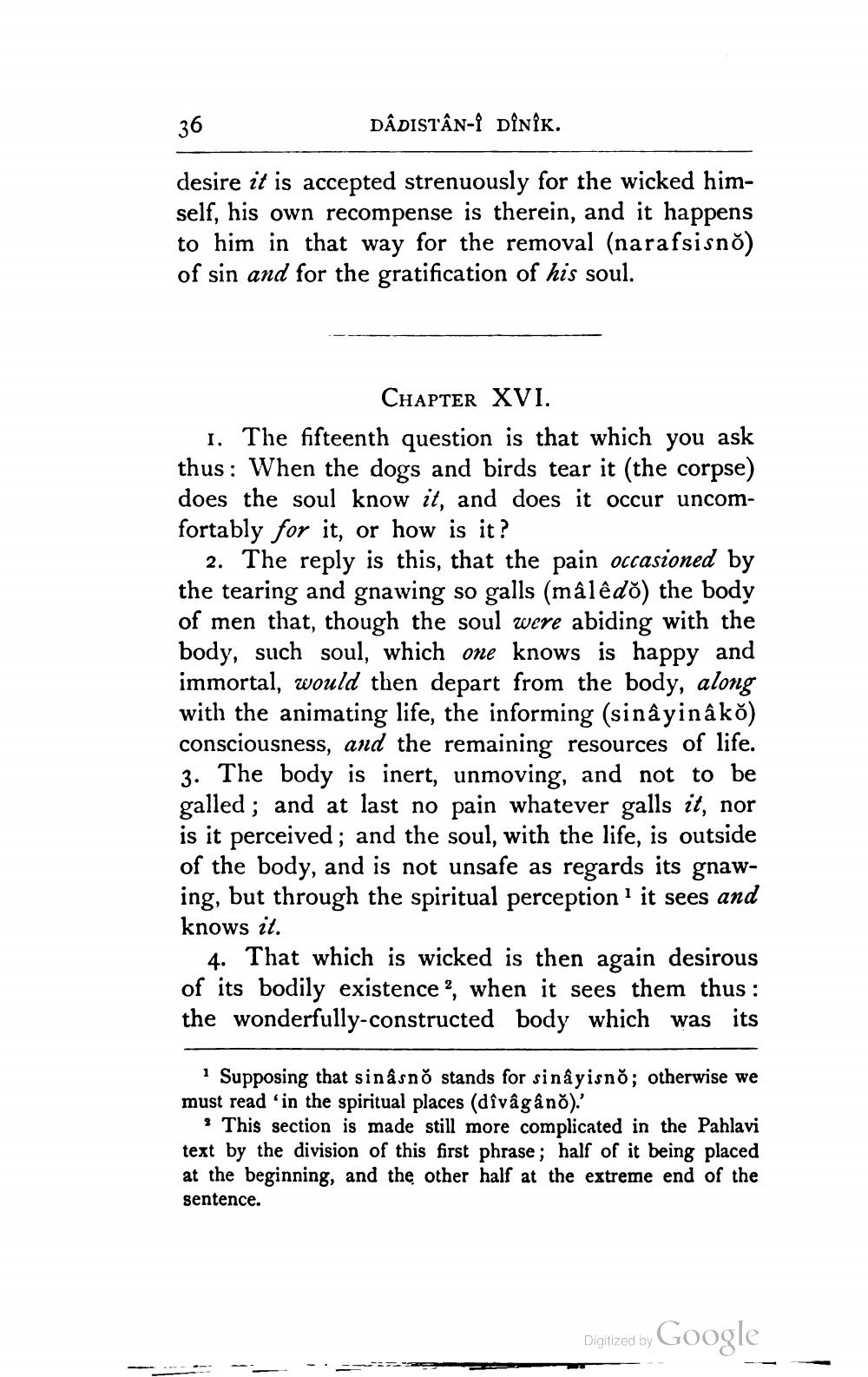________________
DÂDISTÂN-Ê DÎNIK.
desire it is accepted strenuously for the wicked himself, his own recompense is therein, and it happens to him in that way for the removal (narafsisno) of sin and for the gratification of his soul.
CHAPTER XVI. 1. The fifteenth question is that which you ask thus: When the dogs and birds tear it (the corpse) does the soul know it, and does it occur uncomfortably for it, or how is it?
2. The reply is this, that the pain occasioned by the tearing and gnawing so galls (mâlêdo) the body of men that, though the soul were abiding with the body, such soul, which one knows is happy and immortal, would then depart from the body, along with the animating life, the informing (sinâyinâko) consciousness, and the remaining resources of life. 3. The body is inert, unmoving, and not to be galled; and at last no pain whatever galls it, nor is it perceived; and the soul, with the life, is outside of the body, and is not unsafe as regards its gnawing, but through the spiritual perception' it sees and knows it.
4. That which is wicked is then again desirous of its bodily existence ?, when it sees them thus: the wonderfully-constructed body which was its
* Supposing that sinasno stands for sinayisno; otherwise we must read 'in the spiritual places (dîvâgâno).'
. This section is made still more complicated in the Pahlavi text by the division of this first phrase; half of it being placed at the beginning, and the other half at the extreme end of the sentence.
Digitized by Google




